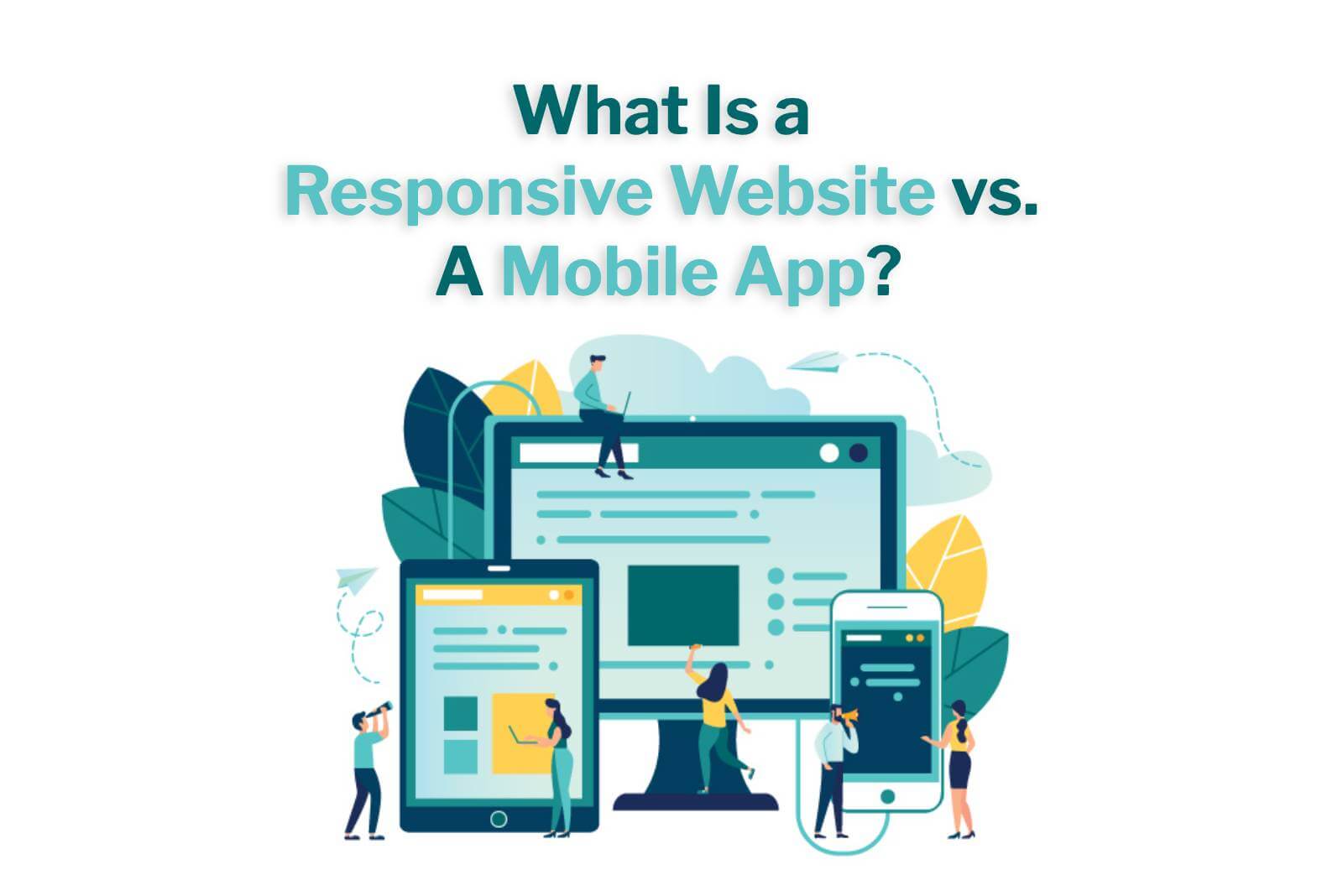
In today’s digital age, businesses and individuals are constantly seeking ways to reach their target audience effectively on various devices. With the increasing use of smartphones and tablets, two popular options have emerged to cater to the mobile audience: responsive websites and mobile apps. Both offer unique advantages and serve different purposes, but it’s crucial to understand the difference between them to make informed decisions about your online presence.
In this article, we will explore the key distinctions between responsive websites and mobile apps and their respective benefits.
Responsive Websites
A responsive website is a website that adapts its layout and design dynamically based on the device’s screen size, orientation, and resolution. It uses a flexible grid system and CSS media queries to ensure the website looks and functions optimally on desktops, laptops, tablets, and smartphones.
Essentially, a responsive website provides an optimal viewing experience, easy reading, and seamless navigation across all devices.
Key Features of Responsive Websites
Device Compatibility
Responsive websites are accessible on a wide range of devices, ensuring a consistent user experience across various screen sizes and platforms.
Cost-Effectiveness
Developing a responsive website can be more cost-effective than building a separate mobile app. It requires a single codebase, reducing development and maintenance expenses.
SEO-Friendly
Search engines favor responsive websites since they offer a consistent URL structure and content across all devices, leading to better search rankings.
Easy Maintenance
Managing a single website is simpler and requires less effort than maintaining both a website and a mobile app.
Instant Updates
Changes made to a responsive website are instantly visible to all users, as there’s no need to wait for app store approvals.
Mobile Apps
A mobile app, on the other hand, is a standalone application designed specifically for use on mobile devices. It needs to be downloaded and installed from app stores like Apple’s App Store or Google Play.
Mobile apps are developed using platform-specific programming languages (e.g., Swift for iOS, Java/Kotlin for Android) and offer a more tailored and immersive user experience compared to responsive websites.
Key Features of Mobile Apps
Enhanced User Experience
Mobile apps are designed with user-friendliness and interactivity in mind, providing a seamless experience that optimizes performance for the specific device.
Access to Device Features
Apps can access built-in device features like camera, GPS, accelerometer, etc., enabling unique functionalities and personalized experiences.
Offline Accessibility
Some mobile apps can function without an internet connection, making them valuable for users who need to access content or features on the go.
Push Notifications
Mobile apps can send push notifications to users, providing timely updates and keeping them engaged.
Brand Loyalty
Mobile apps often contribute to increased customer loyalty and brand recognition due to their personalized nature and convenience.
Choosing the Right Option for Your Business:
The decision between a responsive website and a mobile app depends on your specific goals and target audience. If your primary focus is on providing information and a consistent user experience across devices, a responsive website may be the ideal choice. On the other hand, if you require more advanced features, enhanced user engagement, and offline access, investing in a mobile app could be beneficial.
In some cases, businesses may even choose to have both a responsive website and a mobile app to cover all bases and cater to various user preferences.
Conclusion
In summary, a responsive website and a mobile app serve different purposes and offer unique benefits. A responsive website ensures a consistent user experience across all devices and is cost-effective, while a mobile app provides enhanced functionality, personalization, and offline accessibility.
Understanding the differences between these two options will help you make an informed decision about which approach best suits your business goals and user requirements. Ultimately, whichever option you choose, staying mobile-friendly is essential in today’s digital landscape to reach and engage with your audience effectively.

